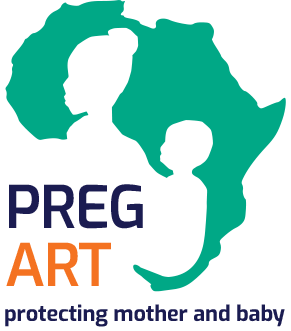“The Uganda National Council of Science and Technology-UNCST” halted research activities on the 27th March, 2020. The halting included discouraging recruitment of new study participants due to the risk of infection the clinical teams and patients at the recruitment sites would have while conducting their activities. Researchers were also discouraged from inviting the already recruited participants to the health care facilities for follow up. Fortunately, this ban was lifted on 1st June, 2020 with UNCST putting strict guidelines for conducting research so as to ensure welfare and safety for both the research participants and the research teams. Overall, the research field was and is still greatly affected.
COVID-19 has greatly affected the world with over 100 million confirmed cases and over 2.5 million reported deaths worldwide. To date Uganda stands at over 40,000 confirmed cases and slightly over 300 deaths. It should be noted that as per the Centre for Disease Control and Prevention (CDC), the country is classed at level 4 (very high) for COVID-19 infections. Uganda registered her first COVID-19 case on 21st March 2020, this declaration coming just moments after the government had closed Uganda’s borders and banned international flights and water vessels from accessing the country, except for cargo and goods. The government also put in place more stringent measures like total lockdown of the country, restrictions on public transport, suspension of mass gatherings, curfew and closure of all public places including academic institutions, amongst others, to contain the spread of the virus to different parts of the country.
It is also worth mentioning that though COVID-19 is a health pandemic, it has had a disruptive socio-economic impact, with retardation in economic activity due to the measures put in place to try curb the spread of the virus. This has resulted in loss of jobs, reduced wages, increased poverty and a general desperation regarding livelihood for majority of the population, including researchers and possible study participants. This therefore raises concern regarding those taking part in the study, as they might be in situations where they need to devote more time to making ends meet, as opposed to taking part in the study, bringing into play a scenario where there is increased loss to follow-up and a great number of people dropping out of the study. Furthermore, due to this challenging economic situation, most people have migrated from urban areas, where the cost of living is relatively high, back to their rural homes to try cut down on costs of living. The result of this is possibly fewer study participants at recruitment sites, as these sites are in urban areas, thus putting a strain on the numbers enrolled as well as the planned timeline of studies.
With the onslaught of COVID-19 and its associated restrictions and SOPs, there has been a surge in costs of certain amenities and goods. Public transport costs have increased because by law carrier vehicles can only carry a restricted (half the usual) number of passengers; the transport providers have as a result doubled the price of transport fares to make up the difference. The hiking of these costs poses a financial challenge to studies as transport re-imbursement costs increase and need to be taken into account: also, fewer people might show up at the recruitment sites because of the expense of transport and this will lead to few enrollments and therefore slow down the research. As well, prices on the market for materials and gadgets necessary for preventing the spread of the virus, like PPE and hand sanitizer, have also soared as companies and businesses possibly try to make a profit from the situation: the studies must put infection prevention measures in place and this puts further financial strain on their budget and finances.
Though not clearly documented, there is also a mental health and psychosocial impact of COVID-19 on Ugandans with many healthcare workers reporting a rise in cases of stress, anxiety, depression and suicide, following the arrival of the pandemic and its associated imposed restrictions. Conducting research in a population with increased mental stress in an equally stressful environment is bound to produce unexpected situations and results, and therefore needs to be taken into consideration.
Although presently a lot of research and resources have gone into developing prevention and control measures, COVID-19 is still relatively novel and fast-evolving, and there are multiple knowledge gaps surrounding the understanding of its course, effective prevention, control and treatment measures, and this poses a fairly unpredictable future. More so, further impact of the disease on the country will depend on the response of the government, the international community, and quite importantly individuals in the community, in line with enforcing and maintaining observation of SOPs and other parameters put in place to reduce disease spread. It is thus vital to plan around and make room for this unpredictability and its possible effects on research as a whole.
